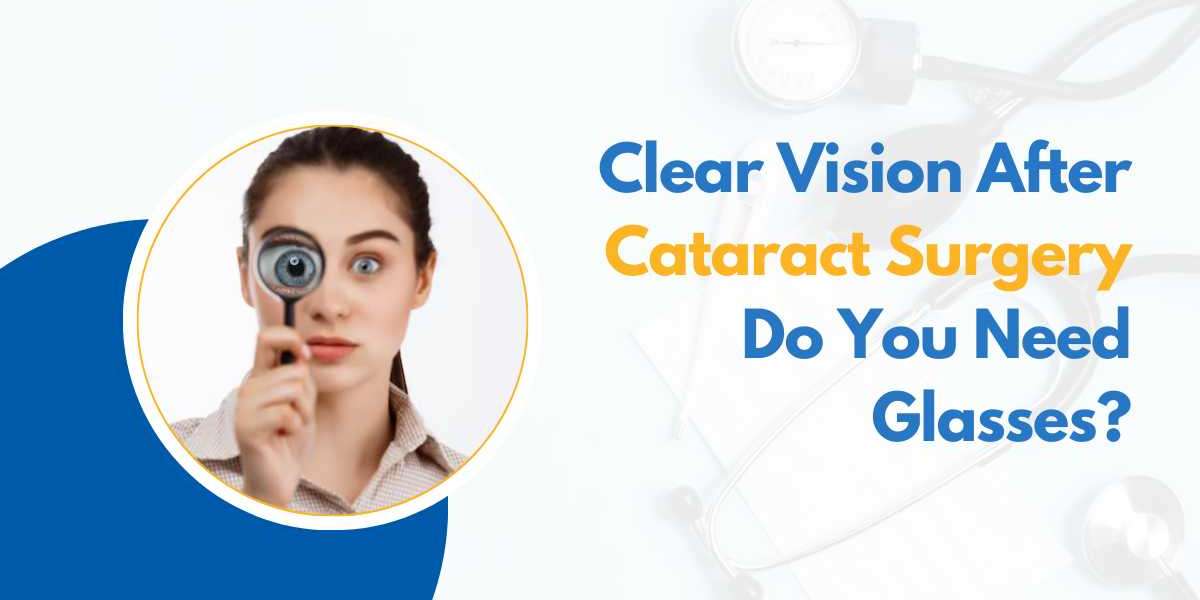Cataract surgery is a transformative procedure that replaces the eye’s cloudy natural lens with a clear artificial lens, called an intraocular lens (IOL). While the surgery greatly improves vision, some patients may still wonder if they need glasses after the procedure. Understanding the factors involved can help set realistic expectations and ensure optimal post-operative care.
At Krishna Eye Care, a leading eye hospital in Mumbai, we prioritize patient education to make the recovery journey smooth and stress-free. Here’s a detailed explanation to help you determine if you might need glasses after cataract surgery in Mumbai.
Factors Influencing the Need for Glasses
- Type of Intraocular Lens (IOL) Used:- The type of IOL implanted during cataract surgery plays a significant role in determining whether glasses will be needed.
- Monofocal Lenses: These lenses correct vision for one distance, typically for distance vision. If you have monofocal lenses, you may need reading glasses for near tasks like reading or using a smartphone.
- Multifocal or Trifocal Lenses: These premium lenses correct vision for multiple distances, reducing the need for glasses for most daily activities.
- Toric Lenses: Designed to correct astigmatism, toric lenses can improve vision significantly but may still require additional correction for certain tasks.
- Pre-Existing Eye Conditions:- Conditions such as astigmatism, macular degeneration, or diabetic retinopathy can affect visual outcomes. While cataract surgery removes the cloudy lens, these conditions may necessitate glasses to achieve the best possible vision.
- Residual Refractive Error:- In some cases, minor refractive errors may remain even after cataract surgery. These can be corrected with prescription glasses or, in some cases, further treatment such as laser vision correction.
Signs You Might Need Glasses After Cataract Surgery
- Difficulty with Near Vision: If you find it challenging to read fine print or perform close-up tasks after surgery, reading glasses may be necessary, especially if monofocal lenses were used.
- Blurred Vision at Certain Distances: Blurriness when viewing objects at specific distances could indicate residual refractive errors.
- Eyestrain or Fatigue: Struggling to focus on tasks for extended periods might mean your eyes require additional support from glasses.
- Difficulty with Night Vision: While rare, some patients may experience glare or halos at night, which glasses with an anti-reflective coating can help reduce.
What to Do Next?
If you notice any of these signs, schedule an evaluation at Krishna Eye Care, a trusted eye hospital in Mumbai. Our experienced ophthalmologists use advanced diagnostic tools to assess your vision and determine whether glasses or further adjustments are needed.
Why Choose Krishna Eye Care for Post-Surgery Care?
At Krishna Eye Care, we are renowned for offering personalized care after cataract surgery in Mumbai. From state-of-the-art facilities to tailored treatment plans, we ensure every patient achieves the best possible visual outcomes.



